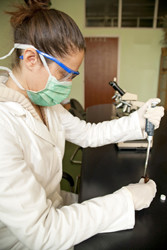Genomic and epigenomic approach for complex disease
Complex diseases deserve that title. A combination of multifactorial genes, the powerful input of environment and its legacy on genetic expression, epigenetics, all make for highly complicated disease aetiologies. To detect causal associations of relevance to the development of therapies, there needs to be very large population sample sizes combined with excellence in pure research, technical resources and data analysis. The 'Genomic & epigenomic complex disease epidemiology' (GEOCODE) project brought together 25 partners in a series of staff exchanges to execute this ambitious objective. Altogether, 91 researcher exchange visits realised 184 exchange months. Project work focused on capacity building in both genomic and epigenomic technologies as well as collaborative projects and grant funding opportunities. The initiative has been awarded over EUR 27 million for research and more than 132 papers have been published. Training included workshops at conferences. One workshop featured at a highly successful international conference, Epigenetics and Developmental Programming, which attracted over 130 delegates from the United Kingdom, Europe and overseas. Training also involved bilateral exchanges between international partners at the Centre for Cellular and Molecular Biology in Hyderabad, India and Newcastle University. Another series of exchanges took place between the Federal University of Pelotas in Brazil and the University of Bristol. Complex diseases such as cancer, type 2 diabetes, obesity, cardiovascular disease and perinatal health problems are a major public health issue in both developing and more affluent countries. Exchanges have brought about disease research synergy for GEOCODE and optimised funding for its execution. This has advanced progress towards therapeutic solutions and, better still, prevention.







